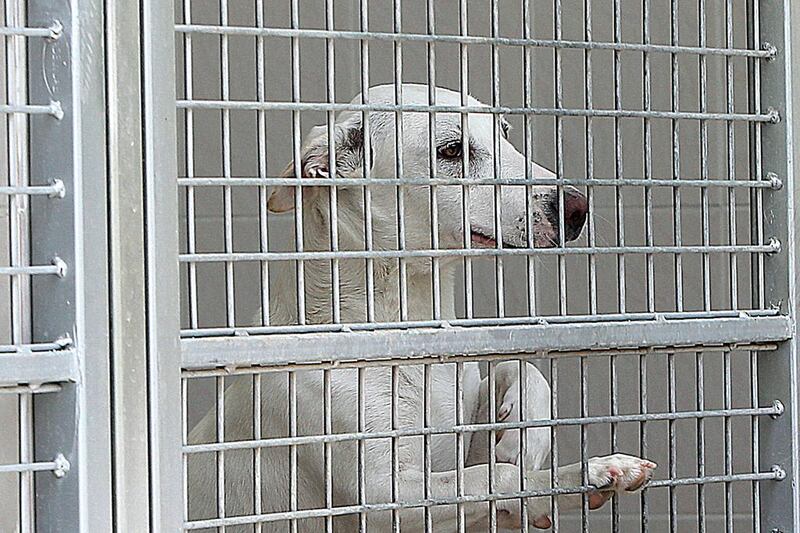DUBAI // Activists want pet shops to adopt an ethical attitude about finding good homes for animals, and say a ban on selling puppies and kittens would stem the increasing number of abandoned pets.
Campaigners say the UAE is trailing behind other nations that have taken a tougher approach to the sale of dogs and cats bred in puppy mills, where animals are produced for commercial purposes.
They believe that if pet shops simply offer homeless animals for adoption it would improve their chances of finding good homes, rather than being dumped.
“In other countries, pet store sales bans are a welcome trend that is putting the squeeze on breeding operations,” said Debbie Lawson, a volunteer who works with animal welfare groups across the UAE.
“There is a huge movement against selling puppies and kittens in pet shops. The tide of public opinion has turned against the barbaric practices of puppy mills and breeding farms that sell puppies and kittens to the pet trade.
“Legislation has been enacted in 160 cities in 17 states in the US and Canada banning the sale of puppy mill cats and dogs.”
Ms Lawson said Victoria recently became the first Australian state to introduce the ban, and there have been petitions and campaigns for similar laws in the UK and other countries.
“In jurisdictions where bans have been introduced the pet shops often offer homeless animals for adoption instead,” she said.
With so many expats in the UAE, some whom abandon their pets when they return home, Ms Lawson said banning the sale of puppies and kittens would “stop the flood of abandoned animals”.
Some pet shops, including Pet Mart in Dubai, are already showing an ethical attitude to running their businesses.
“In the UAE there is so much work to do regarding wildlife, and in stopping people breeding animals themselves at home or importing them from puppy mills,” said Daniela Rauso, of Pet Mart.
“Here, puppies and kittens are used like a present, a gift for a relative or a friend. Most of the time this gift, after a while, becomes an unwanted gift.”
Sarah Bartlett, of Animal Action UAE, said pet shop owners needed to volunteer for this change in attitude if it was to succeed.
She said it would require a great deal of education and engagement from the public.
“Pet shops sell ‘factory bred’ animals because many people want specific breeds, often for their looks or perceived status,” she said. “Many of these animals are then dumped when the novelty wears off.”
Alister Milne, of K9 Friends, said that animals bred in puppy mills could have health and behavioural problems.
“We are regularly contacted by people who have had difficulties, having bought from a pet shop,” Mr Milne said.
“Either the dog has health problems or they have received poor advice on what dogs are suitable for their situation.
“Ethical pet shops are undoubtedly to be encouraged, and a few have started in Dubai. There are certainly enough dogs in Dubai to fill pet shops – we have close to 70 people wanting to give us dogs that we have no space for.
“While I do not think it would be a simple thing to achieve in Dubai, the more places around the world that make the shift the more effect it will have on public opinion.
“It is wonderful to think that pet shops could help with the stray and homeless dog population in Dubai, rather than contributing to it.”
newsdesk@thenational.ae






